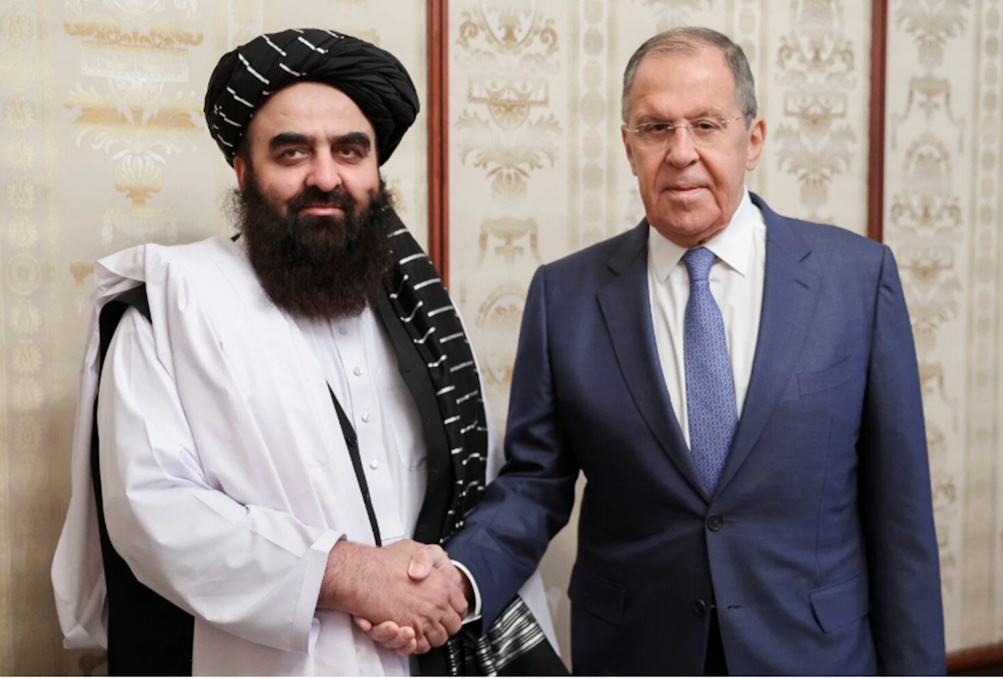By admin
Russia鈥檚 evolving posture toward the Taliban regime in Afghanistan reveals a strategic calculus that transcends mere regional accommodation or counterterrorism hedging. With Moscow now the first major power to formally recognize the Taliban government, and with bilateral ties deepening, the most consequential dimension of this shift may lie not within Afghanistan itself, but in how the Kremlin leverages Kabul as a bargaining chip鈥攑articularly in dealings with a transactional and unpredictable United States, especially under the potential return of Donald Trump.
From Foe to Functional Ally
Long an opponent of Taliban rule, Russia鈥檚 pivot toward engagement has accelerated since the group鈥檚 return to power in 2021. This shift reflects a pragmatic embrace of realpolitik. Moscow鈥檚 recognition of the Taliban comes at a time when the United States and its allies have withheld formal recognition, creating a vacuum that Russia has been quick to fill.
For the Kremlin, this is not merely about Afghanistan. Recognition signals a broader message to the West: Russia can influence regional balances and shape outcomes in areas where the U.S. has withdrawn or failed. In an international context marked by U.S. retrenchment and episodic engagement鈥攑articularly under Trump鈥檚 deal-based foreign policy鈥攖he Taliban regime becomes a token in broader geopolitical negotiations.
Taliban Stability and Strategic Leverage
One of the most overlooked yet strategically vital shifts in post-2021 Afghanistan has been the Taliban鈥檚 consolidation of power. Despite an economy in crisis, a lack of international recognition, and almost no foreign aid, the Taliban have succeeded in ending the decades-long insurgency, curbing widespread insecurity, and preventing the reemergence of warlordism.
The near-completion of the Qosh Tepa Canal exemplifies this transformation. The massive irrigation project aims to divert water from the Amu Darya River and turn arid northern regions into productive farmland. Undertaken without Western funding or oversight, it signals a surprising capacity for infrastructural ambition and state-like functionality, despite sanctions and isolation.
These developments stand in stark contrast to the Western-backed Afghan republic, which鈥攄espite billions in international assistance鈥攃ollapsed under the weight of corruption, insecurity, and fragmentation. Whatever their ideological rigidity, the Taliban have delivered what the former regime could not: relative peace and a functioning state apparatus.
Rights as Bargaining Chips
This emerging order, however, carries a steep social cost, especially for women and girls. The Taliban鈥檚 restrictions on female education and employment have drawn widespread condemnation and continue to block international legitimacy. But these repressive policies may themselves serve as potential concessions鈥攂argaining chips to be traded for recognition, aid, or political engagement.
Russia, for its part, has largely avoided commenting on such human rights issues. For Moscow, stability matters more than liberal norms. The Taliban鈥檚 ability to impose order鈥攈owever illiberal鈥攎akes them a useful partner in a region otherwise defined by volatility. This framing becomes especially attractive in dealings with a potential second Trump administration, which has historically deprioritized human rights in favor of transactional diplomacy.
Central Asia and the Bargaining Table
Central Asia, long considered Russia鈥檚 strategic backyard, now faces a transformed geopolitical landscape. The Taliban鈥檚 growing confidence, combined with projects like the Qosh Tepa Canal, undermines assumptions that Kabul remains weak or peripheral. Countries such as Uzbekistan and Turkmenistan鈥攚hose economies rely on water, border security, and cross-border trade鈥攎ust now engage with a government that not only asserts autonomy but is diplomatically supported by Moscow.
This dynamic strengthens Russia鈥檚 position. As it reasserts influence across Central Asia through regional blocs and security platforms, Moscow can now claim unique access to the one actor no other regional player can fully control: the Taliban. That access becomes a tool of leverage in its broader global strategy, particularly with the United States.
Trump and the Logic of the Deal
Donald Trump鈥檚 foreign policy is characterized by transactionalism, unpredictability, and an aversion to sustained international commitments. His past approaches to conflicts and alliances suggest a belief that complex geopolitical problems can be solved through deal-making rather than long-term institutional frameworks. Russia, observing this, appears to be calculating that it can negotiate more freely with an administration focused on immediate gains over abstract principles.
In this context, the Taliban regime becomes an asset. Russia could propose cooperation on counterterrorism, particularly against ISIS-K, a mutual threat. It could offer to mediate trade, migration, and security issues involving Afghanistan. In exchange, Moscow may seek sanctions relief, concessions on NATO deployments in Eastern Europe, or greater autonomy in its dealings with Ukraine and Georgia.
Whether these deals materialize is uncertain, but the underlying logic is coherent. In a world where legitimacy often hinges on great-power engagement, Russia has offered the Taliban a crucial form of validation. In return, it gains a pliable partner in Central Asia, potential control over critical water and trade routes, and a new lever in its tense relationship with Washington.
Conclusion: Kabul as Collateral in Moscow鈥檚 Global Strategy
Russia鈥檚 recognition of the Taliban is not a gesture of ideological alignment, but a calculated geopolitical move. It serves as an investment in regional influence, a challenge to Western policy, and a hedge against instability. More than that, it is an effort to position Moscow as an indispensable broker in Eurasia.
In making this bet, the Kremlin is wagering that stability鈥攏ot democracy鈥攊s the currency that matters most to Washington. With the Taliban entrenched in power, Russia has found a rare and potent chip: a functioning, disciplined regime in the heart of Asia, ready to be traded at the highest geopolitical table.
